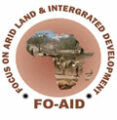Kenya
We have been working in Kenya since 2007 to support conflict-sensitive governance of natural resources, increase inclusive and participatory political governance, and champion gender justice and equality.
We deliver gender and conflict-sensitive guidance and advice to the authorities, development partners and like-minded organisations. We also provide research and analysis into critical peace and conflict issues facing Kenya, including preventing violent extremism and climate change adaptation.
Abundance of natural resources, rapid infrastructural development and the discovery of oil in Turkana provide an economic opportunity for the country. Yet, the economic benefits it brings must be distributed in a way that people consider equitable. We therefore support constructive engagement and dialogue between the private sector, the government and local communities. Building trust and collaborative partnerships, reducing grievances over economic and development opportunities, and developing best practice and policies to address the impact of economic and natural resources related conflict and governance in the region.
We also work on addressing the social and political marginalisation faced by communities in Kenya. Strengthening meaningful citizen participation in the local governance and decision-making processes will help to address the community’s needs and result in more sustainable peace and good governance.
Conflict context
Poverty, high unemployment, land grievances, corruption, impunity and ethnic tensions, among others, have fuelled violence and conflict in Kenya. Some of these issues have not been adequately addressed and are now being exacerbated further by the emerging climate crisis.
Disparities in power and resources within Kenyan politics have long fallen along ethnic lines, with elections being hotly contested and violence around it common. The adoption of the new constitution in 2010 marked the culmination of decades of debates over division of power. Despite this, governance delivery is weak and further compounded by patterns of exclusion, corruption and mismanagement.
The number and intensity of natural resource-based conflicts are increasing. Discovery of oil generated high expectations for economic development for the local community but it also increased conflicts over the control and access to the oil. Furthermore, climate shocks have led to unpredictable weather patterns leading to water scarcity and failed crops for pastoral communities, leading to competition and conflict over limited resources.

Enabling the Business and Human Rights Agenda
The Jamvi la Madini mining conference provided a space for peaceful dialogue between different actors in the mining sector. Organised by the Kwale Mining Alliance, in partnership with International Alert, Transparency International Kenya and Haki Madini Kenya, it took place in Kwale County in June 2023.














